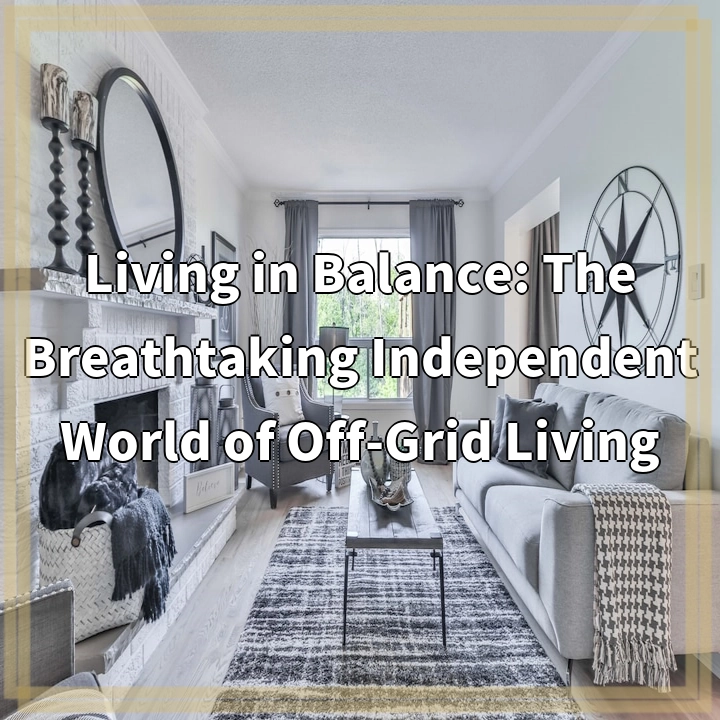Physical Address
304 North Cardinal St.
Dorchester Center, MA 02124
Physical Address
304 North Cardinal St.
Dorchester Center, MA 02124

Off-grid living is a lifestyle choice that involves disconnecting from traditional utility services such as electricity, water, and gas. Instead of relying on public resources, off-gridders generate their own power through solar panels or wind turbines, collect rainwater or use well water, and employ sustainable practices to meet their basic needs.
1. Limited Access to Amenities
Living off-grid often means being located in remote areas that lack access to amenities such as grocery stores, healthcare facilities, and educational institutions. This limited access can pose challenges in terms of obtaining essential supplies and services, especially in emergency situations.
2. Initial High Costs
Transitioning to an off-grid lifestyle typically requires significant upfront investment. The installation costs of solar panels, wind turbines, water filtration systems, and other necessary equipment can be substantial. While these investments are long-term and can save money in the future, they may pose financial barriers for those considering off-grid living.
3. Maintenance and Reliability
Off-grid systems require regular maintenance to ensure efficiency and consistency. Solar panels may need cleaning, batteries may need replacing, and sustainable water systems may require regular monitoring. In remote locations, finding skilled professionals for repairs and maintenance can be challenging, potentially disrupting the reliability of these off-grid systems.
4. Social Isolation
Off-grid living can sometimes lead to social isolation, especially for individuals or families who value frequent interaction and community engagement. Living in remote areas with limited neighbors and social activities can make it difficult to establish connections and have a sense of belonging.
5. Limited Technology Availability
Living off-grid may involve limited access or reliance on technology such as internet connectivity and mobile phone signals. This can hinder communication, access to information, or remote work opportunities in certain professions that heavily rely on technology.
1. Access to Amenities
Off-gridders can overcome limited access to amenities by employing strategies such as careful meal planning, maintaining a well-stocked pantry, and utilizing local farmers’ markets or delivery services. Additionally, forming community cooperatives or joining co-housing projects can help address shared needs and create a sense of collective support.
2. Managing High Costs
To manage the initial high costs of transitioning to off-grid living, individuals and families can explore financing options, grants, and rebates available for renewable energy systems. Moreover, embracing a gradual approach by implementing smaller-scale solutions over time can make off-grid living more financially attainable.
3. Maintenance and Reliability
Off-gridders can educate themselves on system maintenance and troubleshooting. Attending workshops, joining online forums, and connecting with local off-grid communities can provide valuable insights and support. Developing self-sufficiency by learning essential repair and maintenance skills can also alleviate reliance on outside assistance.
4. Combating Social Isolation
Off-gridders can actively engage with local communities, attend social events, and participate in local initiatives to combat social isolation. Additionally, utilizing technology when available, such as online communities and social networking groups, can provide opportunities for connection and sharing experiences with like-minded individuals.
5. Enhancing Technology Availability
Using alternative communication methods, such as satellite internet or Wi-Fi hotspots, can help overcome limited technology availability in remote locations. Additionally, optimizing technology usage with energy-efficient devices and leveraging off-grid tech innovations can maximize limited technology resources.
Implementing these solutions, along with careful planning and adaptability, can help individuals and families enjoy the benefits of off-grid living while successfully managing or mitigating the associated challenges. By finding a balance between self-sufficiency and community engagement, off-gridders can create a fulfilling and sustainable lifestyle.
If you’re wondering where the article came from!
#